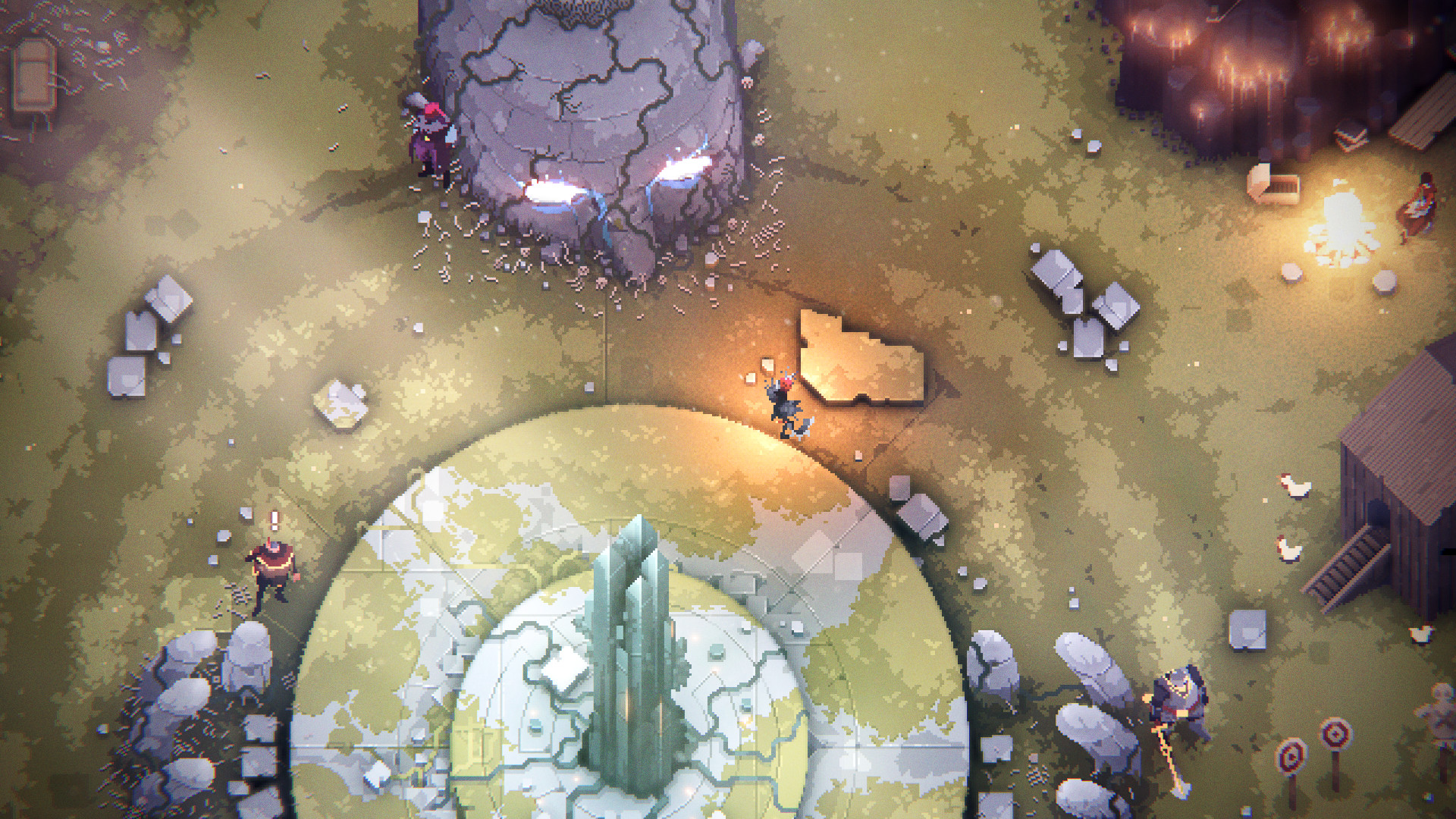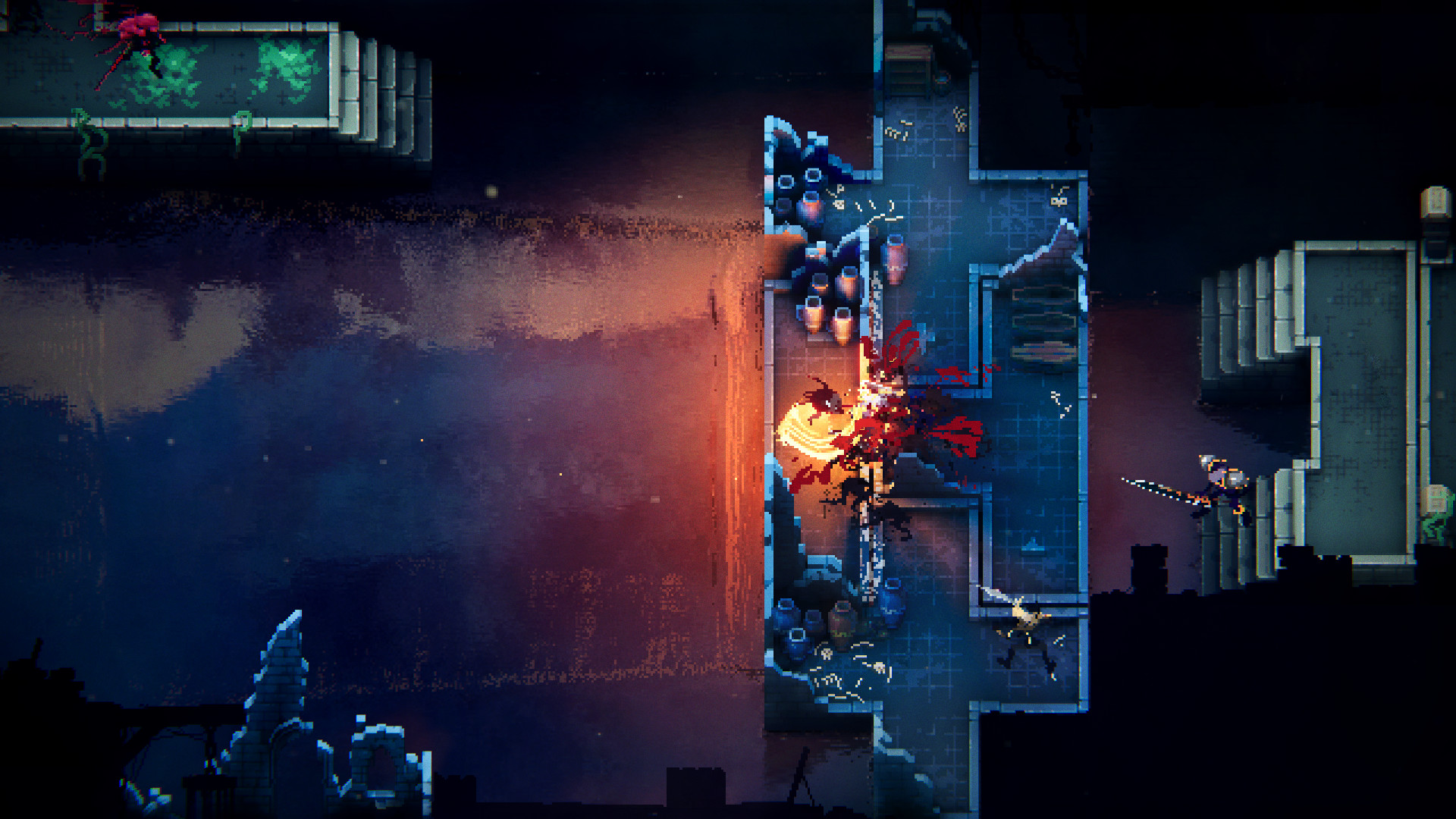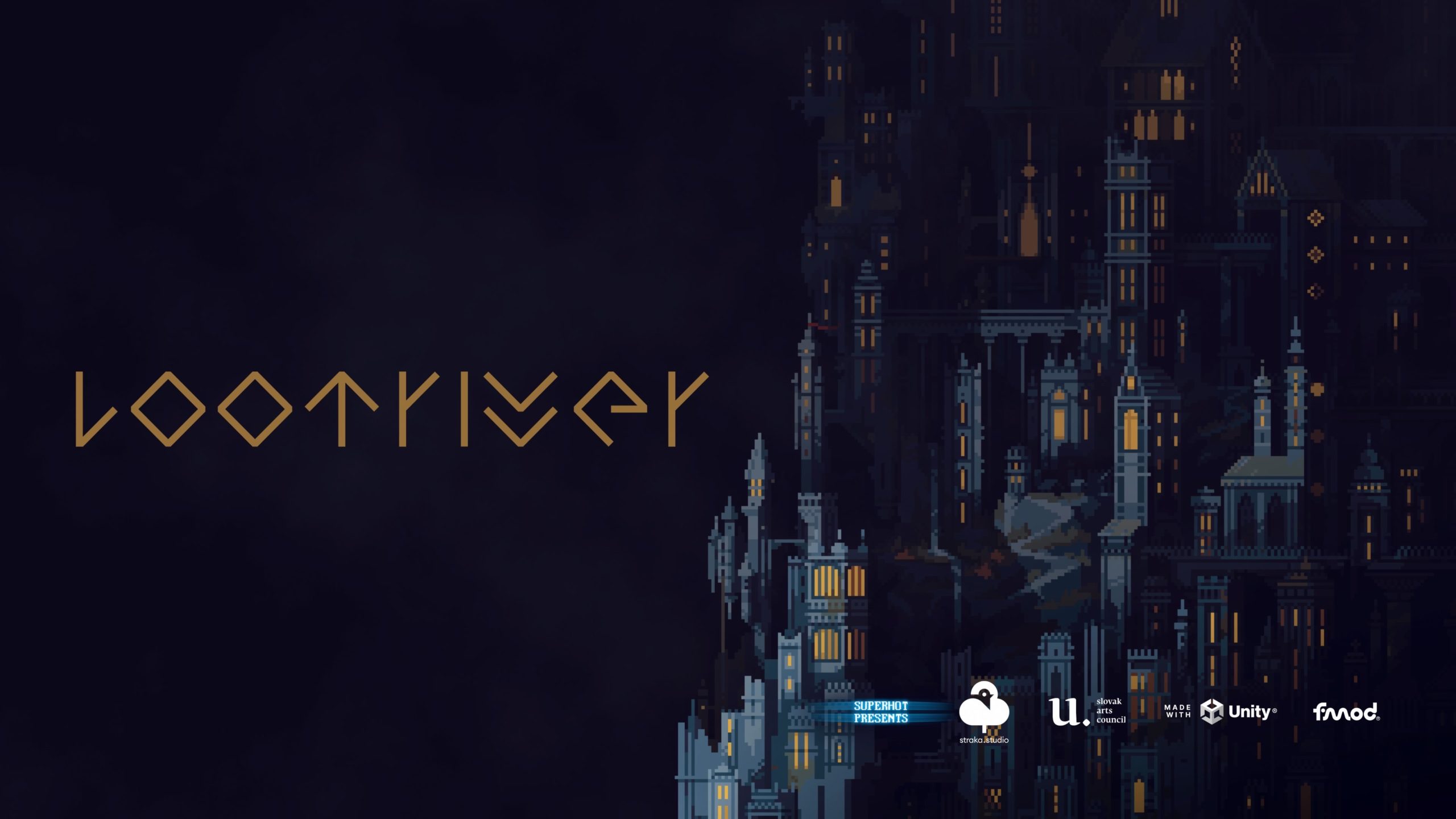It’s been years since the initial release of Loot River at this point. My first exposure to the game was its stunning trailer at the Xbox Indie Showcase in 2021. The action looked distinct, the traversal wholly unique and the aesthetic impeccable – it was easily the highlight of the showcase for me. Since then I’ve had it on my radar, like a distant blip out in the ether. So, to my delighted surprise, during a regular stroll through the PlayStation Store, I noticed that a certain little platform-shifting action roguelite came out late in December.
Straka.studio has been hard at work for what appears to be a year without any other public update on the game – resulting in a Level Editor on top of a PlayStation launch. Even if you’re not on PlayStation, this is easily the best time to play Loot River, as a bunch of quality-of-life improvements and the aforementioned level editor is a free update for everyone to check out. So how well does the amalgamation of inspirations from games like Dark Souls, Diablo, Hyper Light Drifter and… Tetris? come together? Let’s just say you won’t be using the boat-like platforms for a Viking burial.
Down By The River Dead
From an isometric perspective, you awake immediately into the tutorial for the game. The slick and murky river below the protagonist’s feet, and the dilapidated grime of the makeshift platforms covered in blood, paint a picture of squalor. You’ll learn how these shifting floors are entirely controlled by your actions with the right stick. The ability to manipulate the tetromino-like blocks is an innovative way of puzzle platforming.
Going through the tutorial, you’re provided with the necessary information to attack, parry, and use spells through notes left on the floors. Putting the new information to practice by slaying sludge-like Gollums, the first skill check of a boss is at the end of the tutorial dungeon. Beatable, sure, but you’ll always die as death is not the end for you.

Restored back to life, you’re in the main hub of the world where various NPCs gather, providing different services. Dialogue is light though poignant as you try to piece together the dark fantasy world by talking to the inhabitants. Being a roguelite, there’s story significance to your endless cycle of going through these runs. The further you get, the more exposition you acquire. In my 6-8 hours to uncover the “true” ending – as beating the game is always just the start for roguelites – I wasn’t completely enlightened by the reason to the world. It’s enough to keep you playing, but nothing astounding.
Thankfully, the action-heavy combat is enough to satiate the run time I had with it. Your character has a list of stats that are customary in RPGs. Vitality, Strength, Dexterity, Intelligence etc. They all tie to the weapons and spells you use and scale with your stats. You’ll level up to gain skill points to add to these stats, but don’t get too attached as it’ll reset every run. This makes experimenting with different builds a lot of what’s fun in Loot River.
Tetromino Triage

You won’t be button-mashing your attack to slaughter your enemies, as the game prevents cancelling your moves whilst you’re performing them. Instead, you have to be deliberate, learn the parry mechanic well and if all else fails, dodge. There is an easy mode that’ll allow you to cancel moves to dodge, as well as change the numerical damage of your attacks and enemies, making for a faster, more arcade-like experience.
Both options are a blast to play in their own right, as it can give you a flavour of the more deliberate high stakes of Dark Souls, or the more hack-and-slash sensibility of Diablo. Both of which are completely viable and potentially unseen in other titles. This coupled with the manipulation of the platforms at your whim, creates scenarios unique to Loot River. There is a prevalent challenge throughout the gameplay that pushes you to master these multiple aspects in a timely fashion.
The NPCs I mentioned earlier are their own separate vendors. Most of these require ‘Knowledge’ to unlock a skill-tree approach to new weapons, hats, armour and spells. Knowledge is a random drop you’ll gain through regular enemies or the bosses in the fight. Similarly, you’ll always have the same starting weapon, even if you unlocked some shiny new ones. This became a bit annoying, as my want for the weapon of choice was reduced to RNG out in the wild whether or not I’d get my favourite armaments. And obviously the higher the pool of equipment to choose from, the smaller chance I had at the one I wanted.
Water Running Red
There are modifiers that you can apply once you find them as drops out on your runs. One of which randomises your starting weapon, but again, random. Modifiers are an integral part of properly beating the game, but they can also make things generally easier. Starting with one extra potion or adding more enemies for more opportunities for XP or loot makes it so you control what kind of run you want to have. It’s a great concept that I think could have been taken further. Also, story-significant modifiers use up a slot, so you’ll only really have two available slots left to yourself.

Whilst the gameplay is highly nuanced, melding genres and existing IPs’ ideas seamlessly, it’s also beautiful in its visual design. The soft white light shining down on the intricate ruins below, the physics-based water system reacting to your movements and the blood that stretches like a cheese pizza as you peel your platform from another after battle – all have immaculate detail. Loot River uses pixel art for its overall design, though the character sprites look like fully 3D-rendered, creating a nostalgic familiarity in a fresh way. The unique aspects of the gameplay definitely drew me in, way back when the trailer dropped, but the visuals are what caught my eye, and playing the full game was even more impressive.
Gimme The Loot
Boss designs both visually and gameplay-wise are highlights, but Straka.studio’s overall world-building is really what kept me moving forward. The sense of place, the intrigue of the story and the unique approach to a genre that’s seeping with saturation make Loot River stand apart. Not to mention the Level Editor is a close 1:1 experience to how the developers made their procedurally generated worlds, meaning you can design whatever you want just as well.
Overall, I had a lot of fun with Loot River. Mileage may vary, as I rolled credits pretty quickly and that might be due to my exposure to action-heavy rougelites. The moving Tertis-like platforms is a marvel to the overall gameplay design, the combat is thrilling and the visuals are opulent. The roguelite elements are so-so as the story was unsatisfying and the RNG of your progress is unfulfilling, but if you’ve got 10 hours and a hankering for a game of this genre, you’ll have a crushing but exciting time when checking this out.
Loot River can be easily defined by the games it’s inspired by, but the overall execution defies the labels, creating something wholly unique. The game’s not perfect, but what Straka.studios have pulled off is an impressive addition to the action RPG roguelite genre. Innovative gameplay in a visually stunning world makes Loot River a great time.
Loot River is available now for PS5 (review platform), PS4, Xbox Series X|S, Xbox One and PC via Steam.
Developers: straka.studio
Publisher: straka.studio, SUPERHOT PRESENTS
Disclaimer: In order to complete this review, we were provided with a promotional copy of the game. For our full review policy, please go here.
If you enjoyed this article or any more of our content, please consider our Patreon.
Make sure to follow Finger Guns on our social channels. Twitter, Facebook, Twitch, Spotify or Apple Podcasts – to keep up to date on our news, reviews and features.
